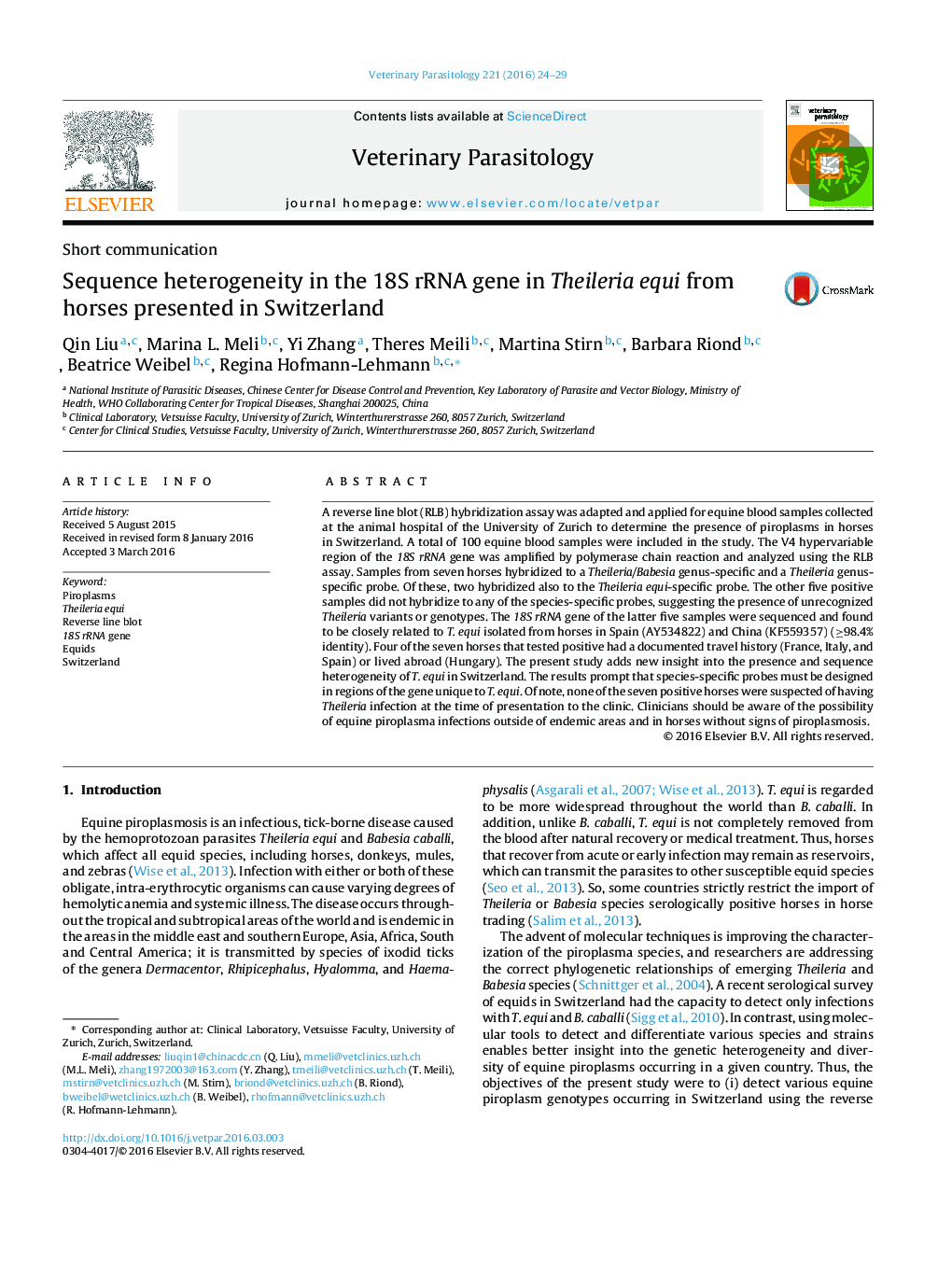| کد مقاله | کد نشریه | سال انتشار | مقاله انگلیسی | نسخه تمام متن |
|---|---|---|---|---|
| 5802204 | 1555655 | 2016 | 6 صفحه PDF | دانلود رایگان |

- 100 horse in Switzerland were tested for piroplasms by reverse line blotting.
- 2 horses were positive for T. equi, 5 only with the Theileria genus-specific probe.
- Sequencing of the 18S rRNA gene suggested the presence of novel T. equi variants.
- The results showed there were two variants or genotype of T. equi in Swiss horses.
- Our data are crucial to improve molecular diagnostic tools and increase awareness.
A reverse line blot (RLB) hybridization assay was adapted and applied for equine blood samples collected at the animal hospital of the University of Zurich to determine the presence of piroplasms in horses in Switzerland. A total of 100 equine blood samples were included in the study. The V4 hypervariable region of the 18S rRNA gene was amplified by polymerase chain reaction and analyzed using the RLB assay. Samples from seven horses hybridized to a Theileria/Babesia genus-specific and a Theileria genus-specific probe. Of these, two hybridized also to the Theileria equi-specific probe. The other five positive samples did not hybridize to any of the species-specific probes, suggesting the presence of unrecognized Theileria variants or genotypes. The 18S rRNA gene of the latter five samples were sequenced and found to be closely related to T. equi isolated from horses in Spain (AY534822) and China (KF559357) (â¥98.4% identity). Four of the seven horses that tested positive had a documented travel history (France, Italy, and Spain) or lived abroad (Hungary). The present study adds new insight into the presence and sequence heterogeneity of T. equi in Switzerland. The results prompt that species-specific probes must be designed in regions of the gene unique to T. equi. Of note, none of the seven positive horses were suspected of having Theileria infection at the time of presentation to the clinic. Clinicians should be aware of the possibility of equine piroplasma infections outside of endemic areas and in horses without signs of piroplasmosis.
Journal: Veterinary Parasitology - Volume 221, 15 May 2016, Pages 24-29